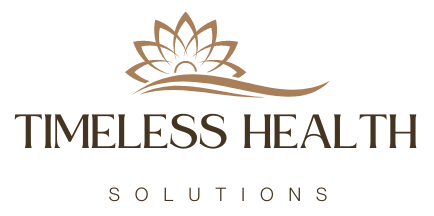
For Men
Low testosterone, also known as testosterone deficiency or hypogonadism, is a condition that affects a significant number of men, particularly as they age. Testosterone is a vital hormone responsible for various aspects of male health, including muscle mass, bone density, fat distribution, and sexual function. When testosterone levels drop below normal, it can lead to a range of symptoms that impact overall well-being.
Symptoms of Low Testosterone
Men experiencing low testosterone may notice the following symptoms:
- Fatigue: A persistent lack of energy and motivation can occur.
- Reduced Libido: Decreased interest in sexual activity is a common sign.
- Erectile Dysfunction: Difficulty in achieving or maintaining an erection may develop.
- Mood Changes: Depression, anxiety, or mood swings can manifest.
- Decreased Muscle Mass: Loss of strength and muscle can be apparent.
- Increased Body Fat: Many men experience changes in fat distribution, often with an increase in abdominal fat.
- Cognitive Changes: Issues with concentration and memory may arise.
Causes of Low Testosterone
Several factors can contribute to low testosterone levels, including:
Aging: Testosterone levels naturally decline as men reach middle age and beyond.
- Medical Conditions: Health issues such as obesity, diabetes, and hormonal disorders can affect testosterone production.
- Medications: Certain medications, including opioids and steroids, can impact hormone levels.
- Lifestyle Factors: Poor diet, lack of exercise, and high stress can contribute to lower testosterone.
Diagnosis and Treatment
A healthcare provider may perform blood tests to measure hormone levels if low testosterone is suspected.
Treatment options may include:
Hormone Replacement Therapy (HRT): This can involve injections, creams, or pellets that provide testosterone to bring levels back to normal.
Lifestyle Modifications: Adopting a healthier diet, increasing physical activity, and managing stress can help improve testosterone levels naturally.
Addressing Underlying Conditions: Treating associated health issues such as obesity or diabetes can also effectively restore hormone balance.
Conclusion
Low testosterone can severely affect quality of life for men. If you are experiencing symptoms or have concerns about testosterone levels, consider consulting a healthcare provider to explore potential causes and treatment options. At Timeless Health Solutions, we offer comprehensive assessments and tailored treatment plans to help manage low testosterone and improve overall health. Consultations start at $200. Lab work is required at visit which is an additional cost.
For Women
Perimenopause refers to the transitional phase leading up to menopause, characterized by hormonal fluctuations that can begin several years before the final menstrual period. During this period, women may experience various symptoms due to changes in estrogen and progesterone levels. Common symptoms include irregular periods, hot flashes, night sweats, mood swings, and sleep disturbances.
The onset of perimenopause typically occurs in a woman’s 40s, although some may start experiencing changes in their late 30s. This transitional phase can last anywhere from a few months to over a decade, making it essential for women to understand and manage the symptoms associated with it.
Hormone replacement therapy (HRT) is one option for alleviating symptoms and may be discussed during telehealth consultations with a medical professional. Lifestyle adjustments, including a balanced diet, regular exercise, and stress management techniques, can also help mitigate discomfort.
Navigating perimenopause can be challenging, but with the right support and resources, women can maintain their quality of life during this significant transition. It is advisable to consult with Timeless Health Solutions to tailor a plan that addresses individual needs and symptom management strategies. This can include estrogen placement, progesterone replacements, and/or testosterone replacement. This can be in the form of pills, patches, or pellets.
Consults start at $200.

Price Details
1. Initial Consultation
$200
2. Initial Blood Work
$250
3. Follow Up Consultation
$150
4. Follow Up Blood Work
$150
5. Hormone Pellets for Men
$700
5. Hormone Pellets for Women
$300
